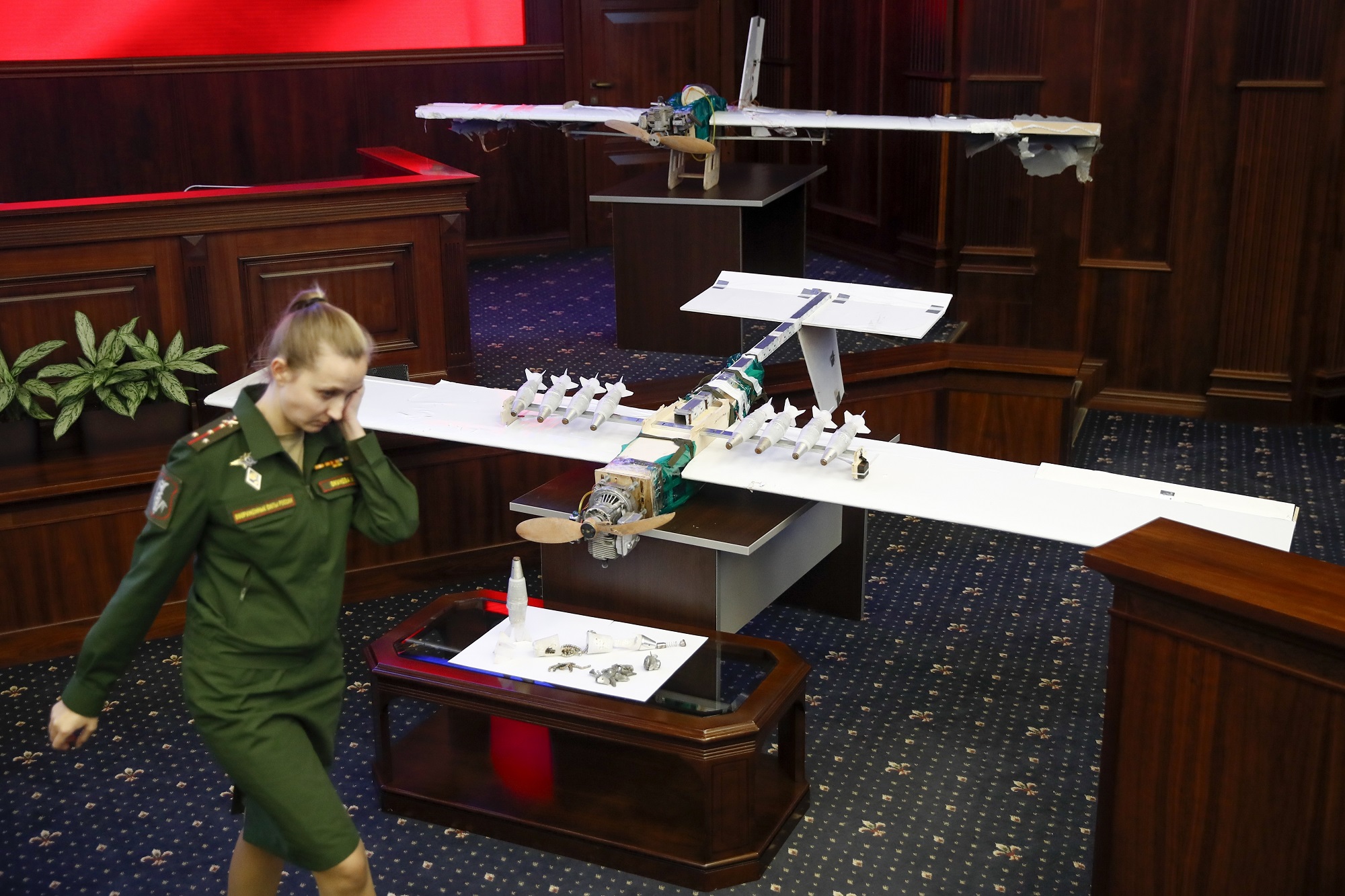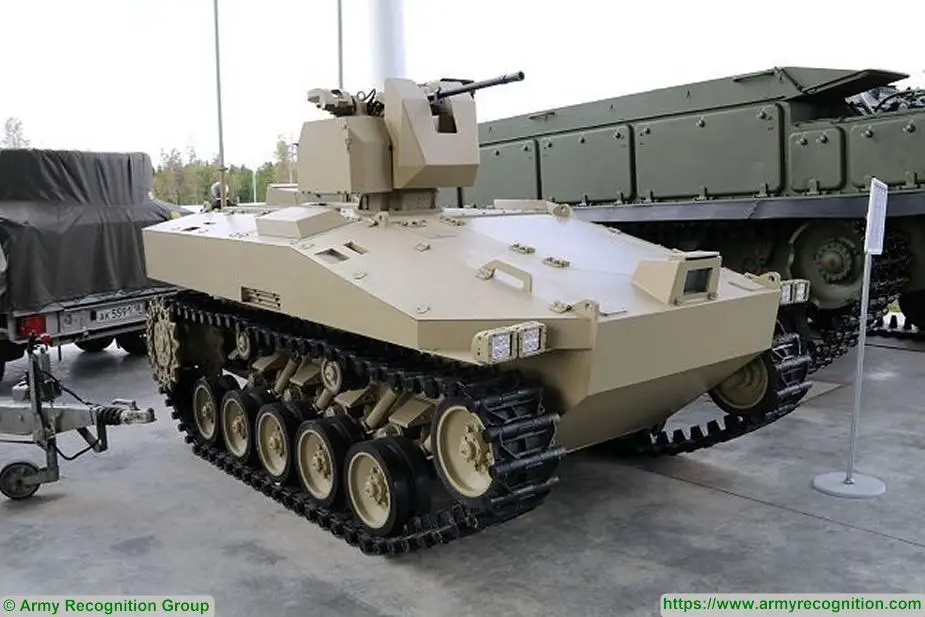LinkkiGeneral Atomics has been awarded a contract by the U.S. Air Force for Block 5 kits for the MQ-9 Reaper, just as the U.S. military begins to phase out the MQ-1 Predator drone.
The contract was announced Wednesday by the Department of Defense, tapping General Atomics for Block 5 kits, in addition to other services worth more than $14.1 million under a cost-plus-fixed-fee and firm-fixed-price undefinitized contract action, which is a modification on a previously awarded contract.
The MQ-9 Reaper is a significantly upgraded version of the MQ-1 Predator unmanned aerial vehicle, or UAV, which is primarily used for intelligence, surveillance and reconnaissance missions.
Install the app
How to install the app on iOS
Follow along with the video below to see how to install our site as a web app on your home screen.
Note: This feature may not be available in some browsers.
You are using an out of date browser. It may not display this or other websites correctly.
You should upgrade or use an alternative browser.
You should upgrade or use an alternative browser.
UAV / UCAV / LAR (robotit) Uutiset ja jutut
- Viestiketjun aloittaja Raveni
- Aloitus PVM
Tuo ylläollut pätkä oli jo kokonaisuudessaan tässä.
Mutta, jos vielä pohtii implikaatioita?
Mitä jos tulevaisuudessa hyökkäys tapahtuu näin:
Tähän jo viitattiin. Aika karmiva pätkä.
Tappajarobottien kieltoa ajavan kampanjan video saa aikaan kylmiä väreitä – "teknologia helpommin saatavilla kuin itseajava auto"
http://www.tekniikkatalous.fi/video...pommin-saatavilla-kuin-itseajava-auto-6687043
Mutta, jos vielä pohtii implikaatioita?
Mitä jos tulevaisuudessa hyökkäys tapahtuu näin:
- Tykistökeskitys, tulenjohtodrone ohjaa tulta
- 1000 minitappajarobottia lentää pilvenä määritellylle maalialueelle ja tappaa siellä kaiken, mitä kameroillaan arvioivat liikkuvaksi sotilaaksi
- Vähäisempi määrä isompia droneja iskee esim. irtaantumaan pyrkiviin panssaroituihin ajoneuvoihin jne
LinkkiBoeing’s revealed it hastily-cobbled-together a cargo drone.
The “cargo air vehicle” (CAV) has a payload of 226kg (500 pounds). The aerospace giant has revealed the craft is powered by battery, boasts eight counter rotating blades and is 4.57 meters long, 5.49m wide, 1.22 meters tall and weighs in at 339 kilograms.
Boeing’s said nothing about speed or range, so it’s hard to assess whether the prototype will be decent competition for conventional transport. Measuring “payload fraction”, by dividing a craft’s payload mass by its overall mass, suggests the craft will offer favourable performance compared to conventional aircraft. The CAV’s fraction is 66 per cent, rather better than some cargo aircraft. The payload is also orders of magnitude greater than the UAVs flow by Google and Amazon, suggesting Boeing's targeting its usual commercial and defence customers rather than would-be-operators of book-delivery drones.
The company’s announcement said the CAV was built in just three months, using tech it acquired in 2017 when it bought Aurora Flight Sciences.
Boeing said the prototype is destined to serve as a testbed for future cargo drones, alongside efforts to figure out just how to get fleets of autonomous aircraft integrated with other commercial flights.
miheikki
Greatest Leader
TEKNOLOGIA SODANKÄYNTI
Tämä tapahtui ensimmäistä kertaa sodankäynnin historiassa: Miehittämättömien lennokkien parvi iski venäläiseen tukikohtaan
https://tekniikanmaailma.fi/tama-ta...ennokkien-parvi-iski-venalaiseen-tukikohtaan/
Tämä tapahtui ensimmäistä kertaa sodankäynnin historiassa: Miehittämättömien lennokkien parvi iski venäläiseen tukikohtaan
https://tekniikanmaailma.fi/tama-ta...ennokkien-parvi-iski-venalaiseen-tukikohtaan/
TEKNOLOGIA SODANKÄYNTI
Tämä tapahtui ensimmäistä kertaa sodankäynnin historiassa: Miehittämättömien lennokkien parvi iski venäläiseen tukikohtaan
https://tekniikanmaailma.fi/tama-ta...ennokkien-parvi-iski-venalaiseen-tukikohtaan/
Tuo tarkoittanee sitä, että tästä eteenpäin yksikään lentotukikohta ei voi olla ilman jonkinlaista kykyä häiritä lennokkeja. Sama koskee varmaankin ammusvarastoja ja muita vastaavia kohteita.
miheikki
Greatest Leader
Suomen Sotilas
https://www.defensenews.com/global/...ry-shows-drones-it-says-came-from-syria-raid/Venäjän puolustusministeriö on esitellyt Syyrian kapinallisilta kaapattuja kömpelön näköisiä miehittämättömiä ilma-aluksia eli droneja.
Syyrian kapinalliset ovat iskeneet venäläisten tukikohtiin Syyriassa lennokeilla ja ilmeisesti aiheuttaneet jonkin verran tuhoja. Nyt Venäjän puolustusministeriö väittää, että iskut ovat vaatineet huomattavaa osaamista ja ulkopuolelta annettua teknistä apua.
Venäjän presidentti väittääkin, että ulkopuoliset tahot yrittävät haitata Venäjän, Iranin ja Turkin sopimusta, jolla Syyrian tilannetta yritetään rauhoittaa.
Venäjän puolustusministeriön mukaan viime lauantain drone-iskuissa Venäjän lentotukikohtaan Syyrian Hemeimeemissä ja sen laivastotukikohtaan Tartuksen satamassa iskettiin 13 dronella. Näistä Venäjä väittää pudottaneensa seitsemän ilmatorjunnalla, ja loput kuusi pudotettiin venäläisten ELSO-yksiköiden toimin. Viimeksi mainituista kolme räjähti maahan osuessaan ja kolme saatiin kaapattua ehjänä.
Uutiskuvissa esitellyt kaksi lennokkia näyttävät varsin kotitekoisilta, mutta venäläisten mukaan ne sisältävät kehittynyttä elektroniikkaa ja ohjelmistoja, jotka ovat vähemmän herkkiä häirinnälle ja mahdollistavat paremman osumatarkkuuden, mihin siis perustuu väite siitä, että lennokkien tekijät olisivat saaneet apua ulkopuolisilta.
//pm
Mideast Africa
Russian military shows drones it says came from Syria raid
By: Vladimir Isachenkov, The Associated Press 18 hours ago

Raveni
Greatest Leader
Mikä estää tosiaan asentamasta vähän raskaampaan droneen ontelopanosta. Autoommattinen toiminta kohde aluueella (partiointi) kun kohde näkyy niin se iskee siihen (autonominen hyökkäys). Määrättyinä aikoina se siirtyy ennalta määritellylle alueelle jossa sille voidaan syöttää komentoja tai palaa latautumaan telakkaansa.Tuo ylläollut pätkä oli jo kokonaisuudessaan tässä.
Mutta, jos vielä pohtii implikaatioita?
Mitä jos tulevaisuudessa hyökkäys tapahtuu näin:
Aika kylmäävä tulevaisuudenkuva.
- Tykistökeskitys, tulenjohtodrone ohjaa tulta
- 1000 minitappajarobottia lentää pilvenä määritellylle maalialueelle ja tappaa siellä kaiken, mitä kameroillaan arvioivat liikkuvaksi sotilaaksi
- Vähäisempi määrä isompia droneja iskee esim. irtaantumaan pyrkiviin panssaroituihin ajoneuvoihin jne
http://www.airbus.com/newsroom/pres...-naval-group-and-airbus-helicopters-resp.html
Paris, The DGA (Direction Générale de l’Armement) has just awarded a contract for technology development in the field of rotary-wing drones to the Naval Group and Airbus Helicopters consortium. The contract covers de-risking studies ahead of construction of a future tactical helicopter drone demonstrator aboard warships. The demonstration project will lead to trials of the drone launch system, mission system and airborne vehicle, conducted from a French Navy vessel.
...
Based on an innovative, versatile, robust and economical helicopter platform, the VSR700 drone system is being developed by Airbus Helicopters to offer its military clients the best possible combination of multi-role performance, reliability and operating costs. This 700-kg drone, derived from a light civilian helicopter, the Cabri G2, benefits from the technical know-how of Airbus Helicopters in certified autonomous flight systems and naval helicopters. A campaign of autonomous flights was started in June 2017 using an unmanned Cabri G2 prototype to validate the integration of the flight control systems and the vehicle’s new engine system, opening the way for the first flight of the VSR700 in 2018.
...
The VSR700 can exceed 10 flight hours of operational autonomy with a payload capacity of up to 150 kg, offering performance levels that have, until now, been the reserve of aircraft of a significantly higher category and size. The system will benefit from all the know-how of Airbus Helicopters in terms of automated flight control (the guarantee of a unique automatic deck-landing capacity in rough seas), autonomous navigation system, secure data link, the integration of sensors such as radar and optronic systems, the management of complex mission systems and the certification of military aircraft. This expertise, which builds on a heritage going back more than 70 years, allows Airbus Helicopters to design a drone system that precisely meets the needs of the French Navy. The aerial vehicle has low maintenance requirements and strong synergies with the ships existing logistical footprint, thus limiting support and operations costs, while its compact size is compatible with the simultaneous use of an on-board helicopter across different surface ships.
Paris, The DGA (Direction Générale de l’Armement) has just awarded a contract for technology development in the field of rotary-wing drones to the Naval Group and Airbus Helicopters consortium. The contract covers de-risking studies ahead of construction of a future tactical helicopter drone demonstrator aboard warships. The demonstration project will lead to trials of the drone launch system, mission system and airborne vehicle, conducted from a French Navy vessel.
...
Based on an innovative, versatile, robust and economical helicopter platform, the VSR700 drone system is being developed by Airbus Helicopters to offer its military clients the best possible combination of multi-role performance, reliability and operating costs. This 700-kg drone, derived from a light civilian helicopter, the Cabri G2, benefits from the technical know-how of Airbus Helicopters in certified autonomous flight systems and naval helicopters. A campaign of autonomous flights was started in June 2017 using an unmanned Cabri G2 prototype to validate the integration of the flight control systems and the vehicle’s new engine system, opening the way for the first flight of the VSR700 in 2018.
...
The VSR700 can exceed 10 flight hours of operational autonomy with a payload capacity of up to 150 kg, offering performance levels that have, until now, been the reserve of aircraft of a significantly higher category and size. The system will benefit from all the know-how of Airbus Helicopters in terms of automated flight control (the guarantee of a unique automatic deck-landing capacity in rough seas), autonomous navigation system, secure data link, the integration of sensors such as radar and optronic systems, the management of complex mission systems and the certification of military aircraft. This expertise, which builds on a heritage going back more than 70 years, allows Airbus Helicopters to design a drone system that precisely meets the needs of the French Navy. The aerial vehicle has low maintenance requirements and strong synergies with the ships existing logistical footprint, thus limiting support and operations costs, while its compact size is compatible with the simultaneous use of an on-board helicopter across different surface ships.
Trials begin for the world’s smallest operational military aircraft
https://ml-fd.caf-fac.ca/en/2018/01/9145
https://ml-fd.caf-fac.ca/en/2018/01/9145
Viimeksi muokattu:
Tuo ylläollut pätkä oli jo kokonaisuudessaan tässä.
Mutta, jos vielä pohtii implikaatioita?
Mitä jos tulevaisuudessa hyökkäys tapahtuu näin:
Aika kylmäävä tulevaisuudenkuva.
- Tykistökeskitys, tulenjohtodrone ohjaa tulta
- 1000 minitappajarobottia lentää pilvenä määritellylle maalialueelle ja tappaa siellä kaiken, mitä kameroillaan arvioivat liikkuvaksi sotilaaksi
- Vähäisempi määrä isompia droneja iskee esim. irtaantumaan pyrkiviin panssaroituihin ajoneuvoihin jne
Tässä noita militääri-tappajarobotteja on juuri eri kokoisina versioina.
https://www.ainonline.com/aviation-...n-demonstrates-another-loitering-attack-drone

Ensimmäistä päivää testissä ollut lennokki pelasti kaksi aaltoihin jäänyttä poikaa Australiassa – teknologia mullistaa hengenpelastuksen ja tunnistaa jopa hait
Hengenpelastajat onnistuivat parissa minuutissa ohjaamaan lennokin noin 700 metrin päähän rannasta ja tiputtamaan kelluntavälineen uimareille.
https://www.hs.fi/ulkomaat/art-2000005530163.html
Hengenpelastajat onnistuivat parissa minuutissa ohjaamaan lennokin noin 700 metrin päähän rannasta ja tiputtamaan kelluntavälineen uimareille.
https://www.hs.fi/ulkomaat/art-2000005530163.html

LinkkiThe Soratnik automated fighting system has been tested in an environment close to real combat at temperatures of more than 30°C, the press office of Russia’s Kalashnikov Corporation told TASS. The Kalashnikov Corporation that is a subsidiary of Russia’s Rostec state hi-tech corporation is the developer of the Soratnik system.
A video posted by media organizations showed a Soratnik fighting vehicle moving along the sea coast and firing weapons against targets. One of the videos posted on the YouTube says the Soratnik robot has been tested in Syria. "The Soratnik automated fighting system has been tested in an environment close to real combat. The trials confirmed the robot’s characteristics and proved its capability to operate at temperatures of more than 30°C," the press office said. According to the press office, the groundwork laid during the development and the production of the Soratnik system and the results of its trials will be used as the basis for perspective combat robots. The Soratnik armored tracked vehicle is designed to conduct reconnaissance, transmit data, patrol and protect territories and key facilities and carry out mine- and obstacle-clearing operations.
The Soratnik system operates in three control modes. It has a weight of no more than seven tons and a speed of 40 km/h (25 mph). The vehicle can operate within a radius of 10 kilometers (6.2 miles) in remote-controlled mode and direct visibility. The system’s tracked platform can be equipped with 7.62mm and 12.7mm machineguns and a 30mm AG-17A grenade launcher. The combat module has a gyro-stabilizer and can detect, identify, track and eliminate targets independently. The Soratnik system can also carry eight Kornet-EM (NATO reporting name: AT-l4 Spriggan) antitank missiles.
LinkkiPaul Scharre’s recent article “Why You Shouldn’t Fear ‘Slaughterbots’” dismisses a video produced by the Future of Life Institute, with which we are affiliated, as a “piece of propaganda.” Scharre is an expert in military affairs and an important contributor to discussions on autonomous weapons. In this case, however, we respectfully disagree with his opinions.
LinkkiIn a new paper appearing in IEEE Robotics and Automation Letters, Scaramuzza and one of his Ph.D. students, Antonio Loquercio, along with collaborators Ana I. Maqueda and Carlos R. del-Blanco from Universidad Politécnica de Madrid, in Spain, present some new work in which they’ve trained a drone to autonomously fly through the streets of a city, and they’ve done it with data collected by cars and bicycles.
Most autonomous drones (and most autonomous robots in general) that don't navigate using a pre-existing map rely on some flavor of simultaneous localization and mapping, or (as the researchers put it), "map-localize-plan." Building a map, localizing yourself on that map, and then planning safe motion is certainly a reliable way to move around, but it requires big, complex, and of course very expensive, power-hungry sensors and computers. And if we’re going to make commercial drones work, that’s just not feasible.
LinkkiA new joystick developed by startup MotionPilot lets users fly drones with just one hand in a fun, intuitive way. One version of this device includes a haptic feedback mechanism that gives users a sense of the drone’s position as it moves through the air. Drone aficionados were recently impressed by a prototype, and the device could hit the market soon.
